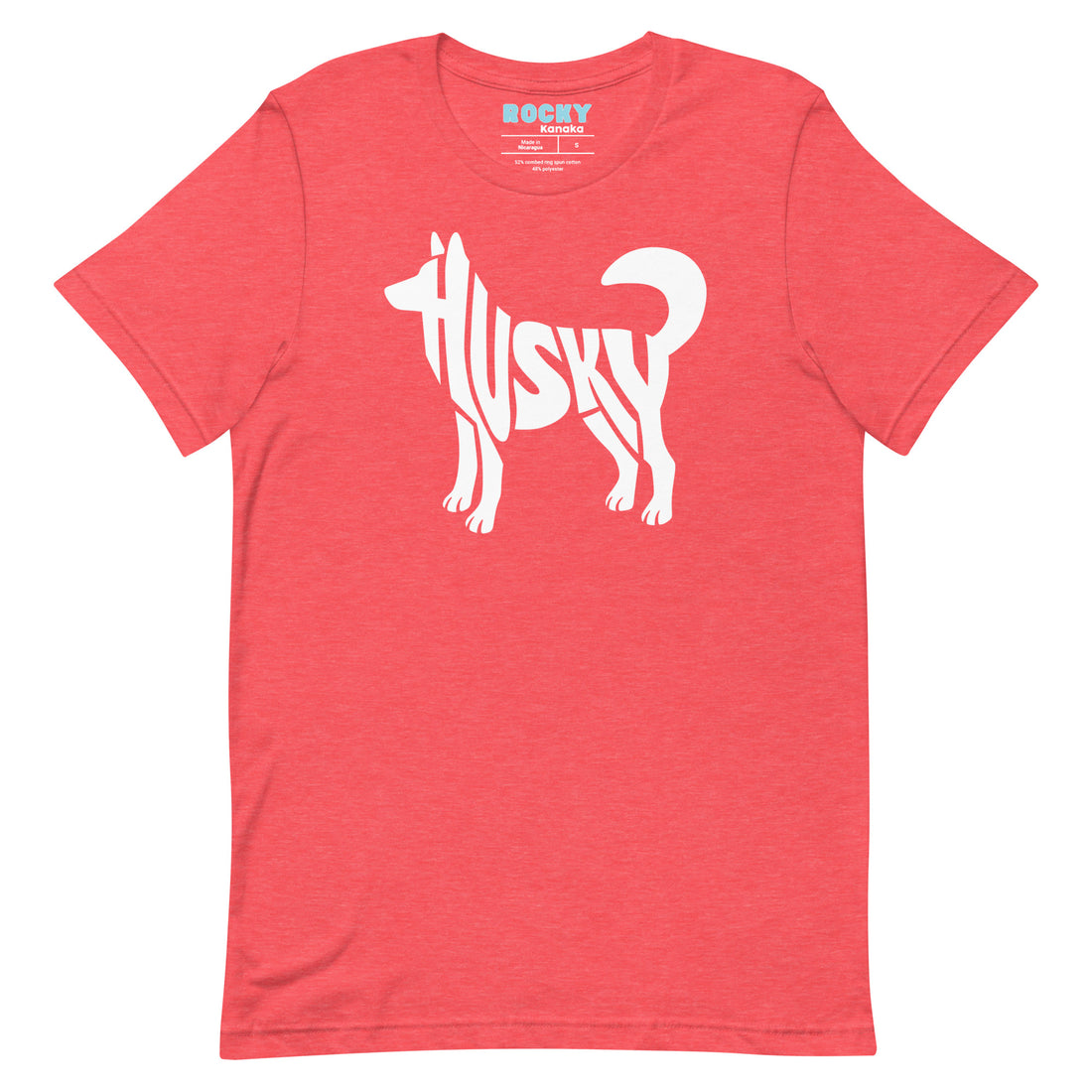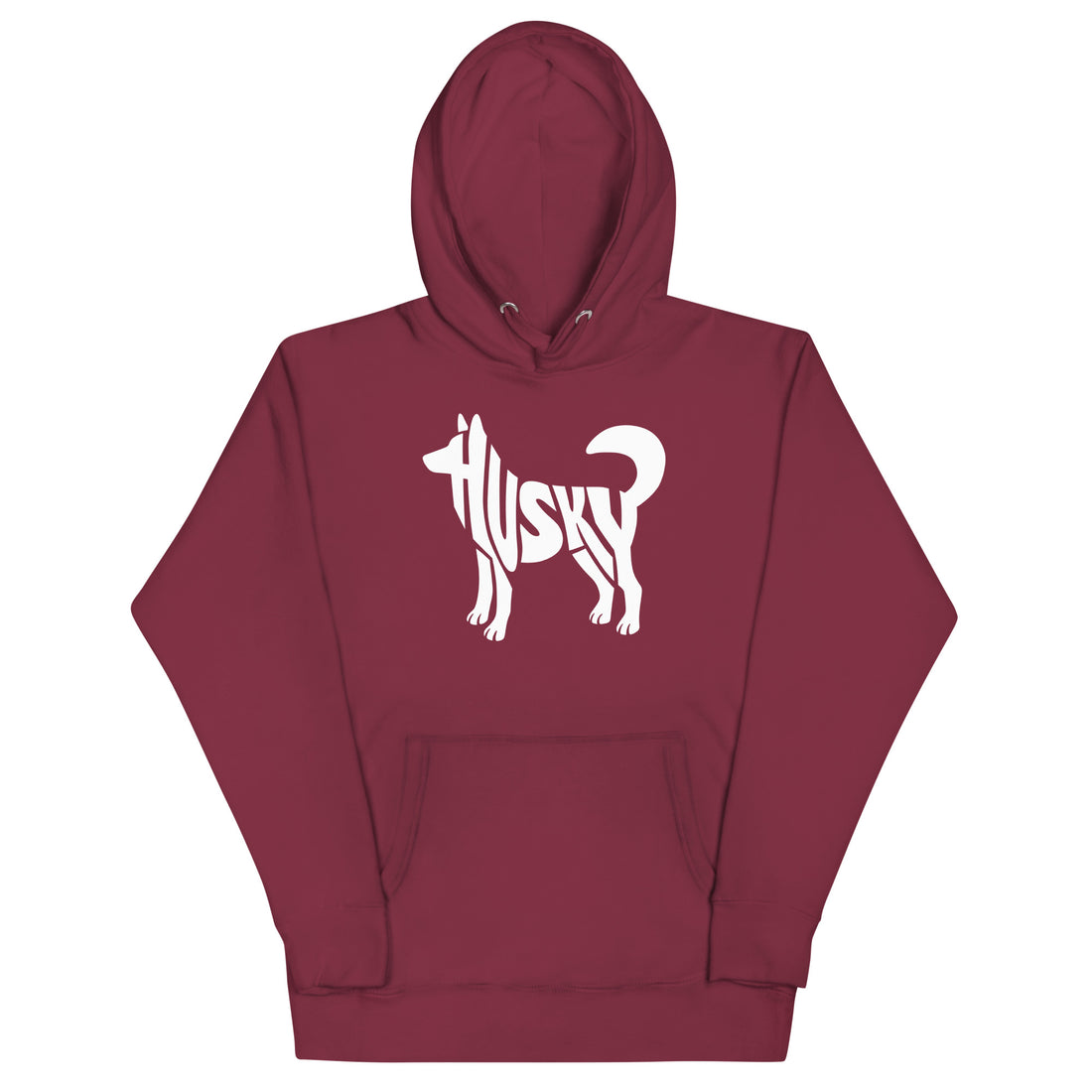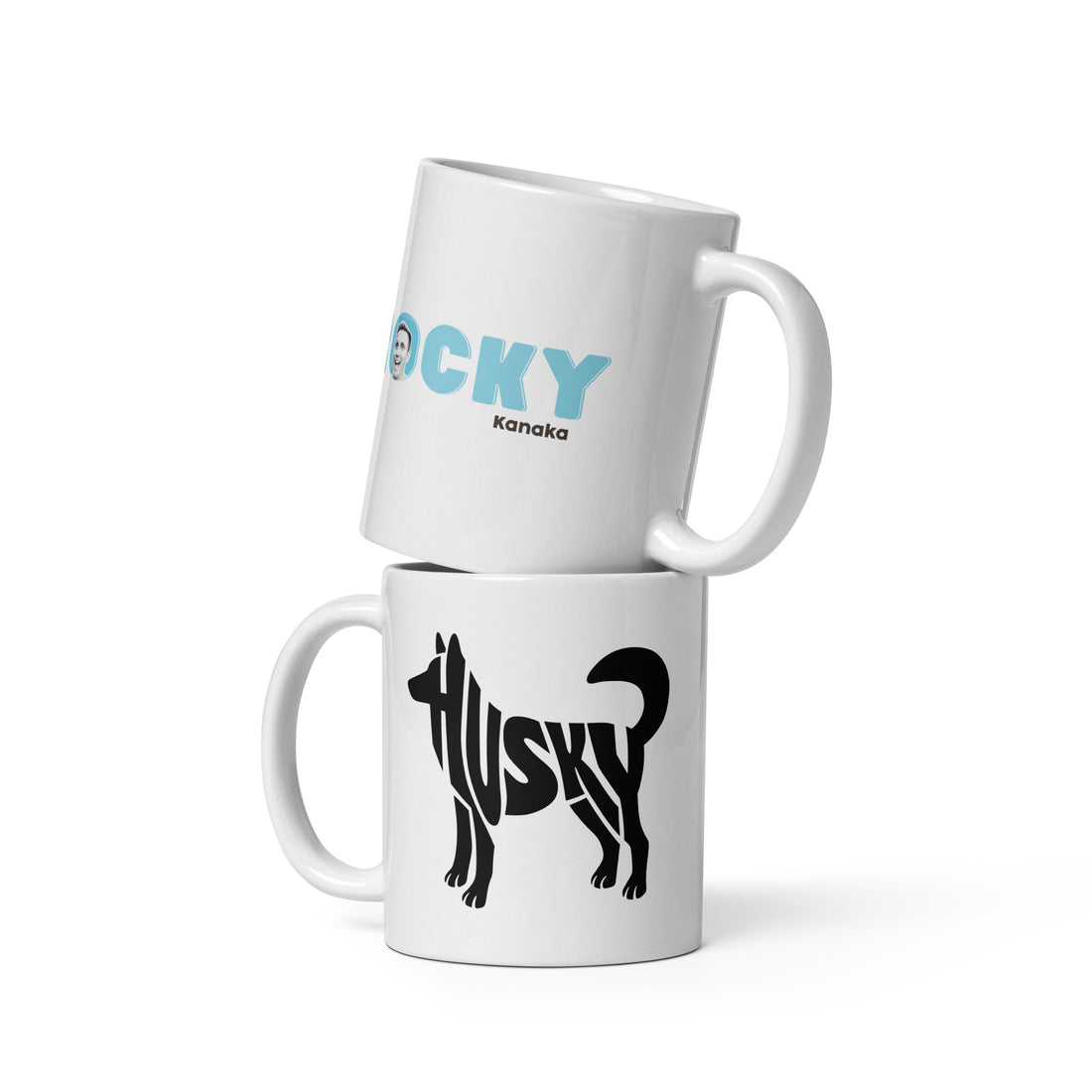Are Huskies Hypoallergenic?
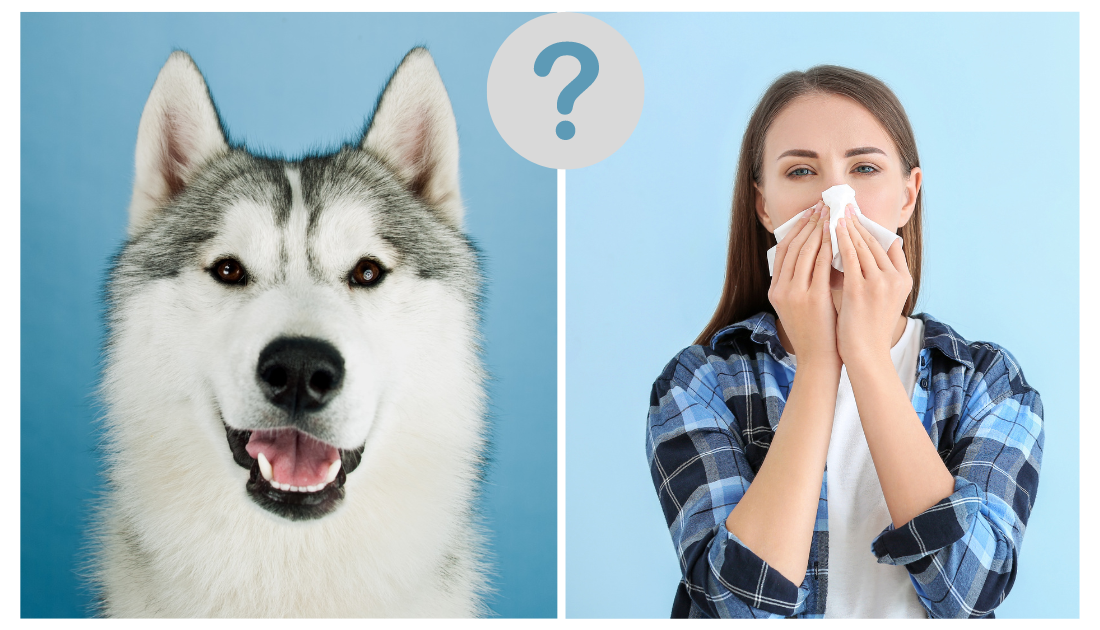
Here in the United States, we love our pets! Dogs and cats are the most popular pets and data shows that a sizable chunk of households keep dogs. Huskies are among the more popular breeds, as they are great, sweet, family-friendly dogs.
Unfortunately, many Americans suffer from dog allergies. This leads to people who are allergic to dogs searching for so-called hypoallergenic dog breeds. Hypoallergenic dog breeds are advertised as not causing allergic reactions or greatly reducing allergic reactions in dogs.
Are Huskies one of these hypoallergenic breeds? In this guide, we’ll cover what hypoallergenic means, if Huskies are hypoallergenic, and how to reduce your allergic responses to dogs. Read on to learn more!
What Does Hypoallergenic Mean?
Hypoallergenic means that something is unlikely to cause an allergic response. Often, when a dog breed is referred to as hypoallergenic, it means that a dog is less likely to cause a person with pet allergies to have a reaction.
Is Hypoallergenic Really Even a Thing?
Several popular dog breeds are called hypoallergenic, including poodles, bichon frises, Yorkshire terriers, and schnauzers. Do these popular dogs actually reduce allergic reactions? Unfortunately, no dog breed causes zero allergic responses.
According to one study, there is a lack of data showing that so-called hypoallergenic dog breeds actually reduce allergic reactions. Every dog produces proteins in saliva and dead skin cells that cause allergies, so even hairless breeds can cause allergies.
What Can Trigger Dog Allergies in Humans?

People with allergies to dogs are actually allergic to proteins made by the dog. There are several different dog proteins. Sometimes a person can be allergic to one kind of protein, but not others.
One example is the dog protein Can f 5. There is research showing that this protein is only made by male dogs. If you are allergic to this protein, you can avoid it by adopting female dogs only. However, it isn’t always that simple.
Sometimes it is difficult to know what proteins you are allergic to. There are a few things dog allergy sufferers should try to avoid. Saliva and urine, fur, dead skin flakes, and carpets and furniture covered with dog hair should all be avoided if possible. A large amount of dander and fur in your home is a common trigger.
Top Tips for Dog Owners With Allergies
What can you do if you are allergic to your Siberian Husky? There are several things you can do so that you can keep your canine companion even though you have allergies. Try some of the following things to reduce your allergic responses:
- Use a high quality air filter in your home


- Conduct regular house cleaning sessions
- Vacuum regularly to get rid of pet hair
- Keep over-the-counter allergy medication on hand for allergic reactions
- Consider choosing a dog breed that sheds less
- Ask your doctor about getting allergy shots to reduce attacks
- Wash your dog frequently. Not sure how often, here’s a quick quiz you can take to determine how often you should wash your dog.
Are Huskies Hypoallergenic Dogs?
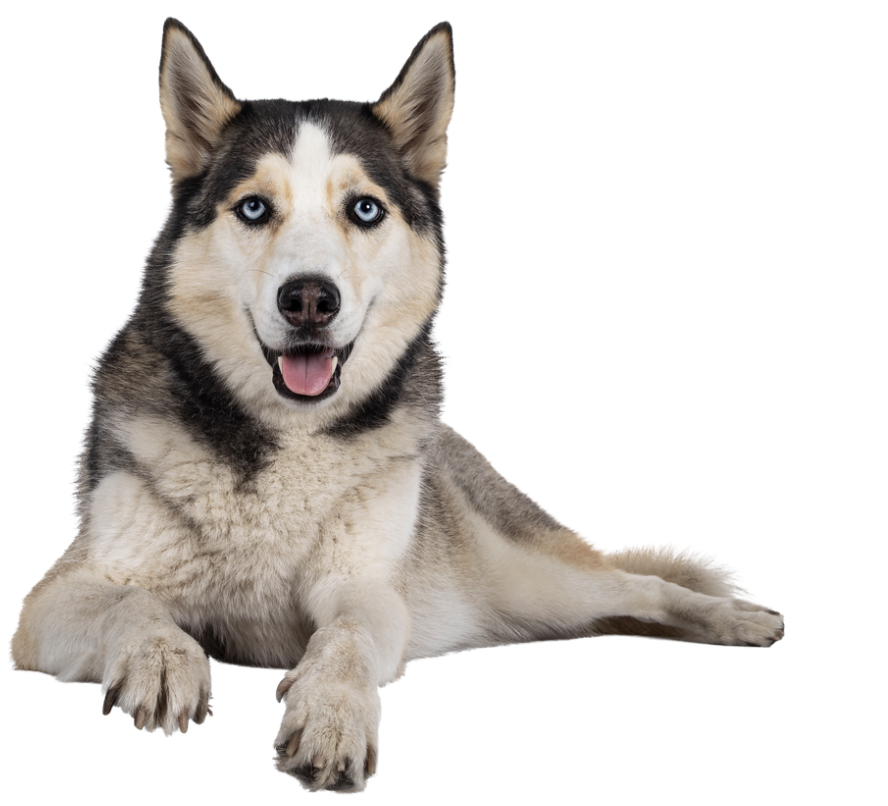
So, are Huskies hypoallergenic? Unfortunately, no. Breeds considered hypoallergenic typically don’t shed much, and Huskies shed quite a bit. In fact, Huskies have a double coat and typically shed twice yearly. More shedding means more fur and dander in your home, which means more allergy attacks for you if you have this breed.
How can I Reduce my Allergy Triggers to a Husky?
Just because you have dog allergies, doesn’t mean you can’t have a Husky. There are a few ways you can help reduce your allergies and still have one as a pet. Follow this advice if you are allergic to Siberian Huskies:
1. Make sure you bath the dog regularly
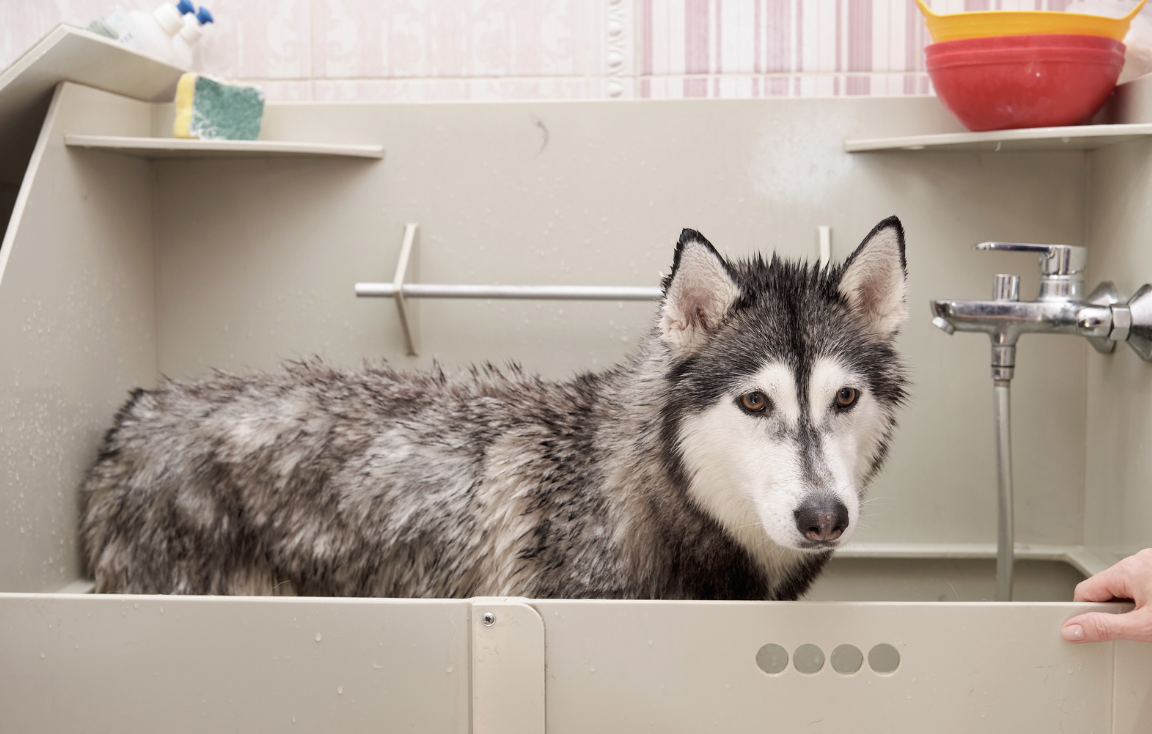
Bathing helps get rid of dead skin cells
2. Keep him groomed and brushed regularly
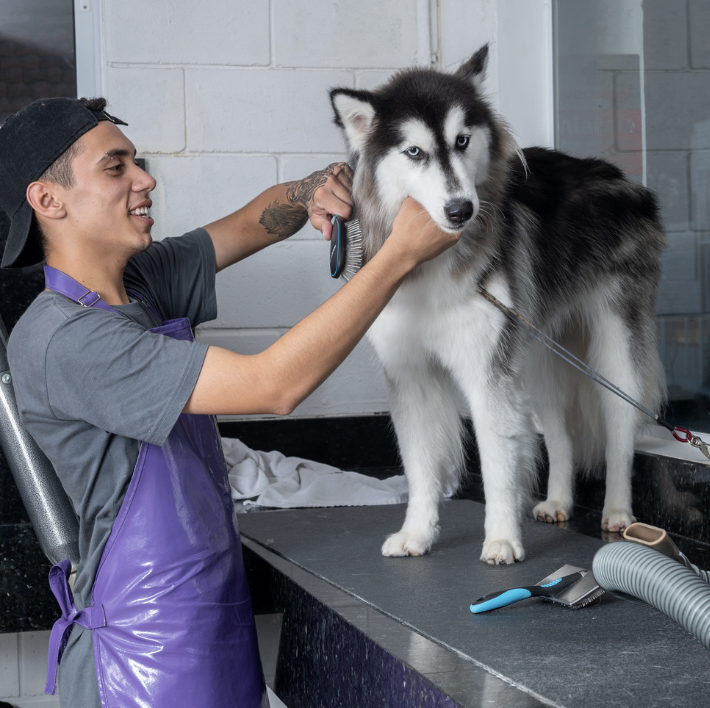
3. Do your grooming outside, and use gloves if needed
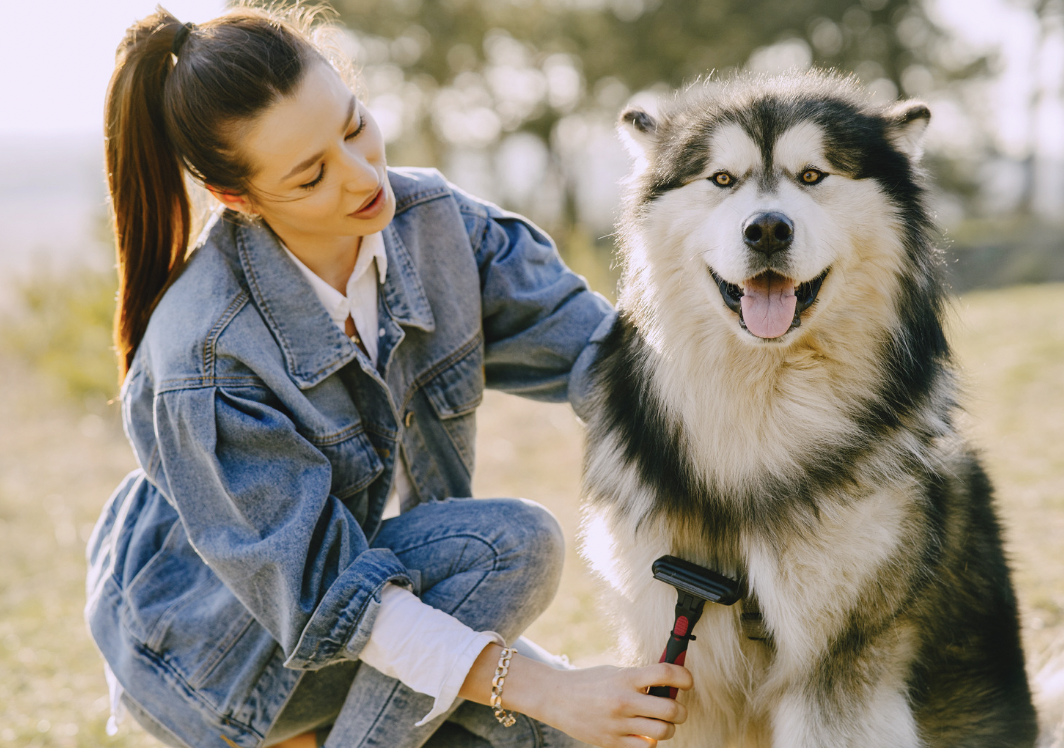
4. Stay on top of pests; more scratching means more dander flying everywhere
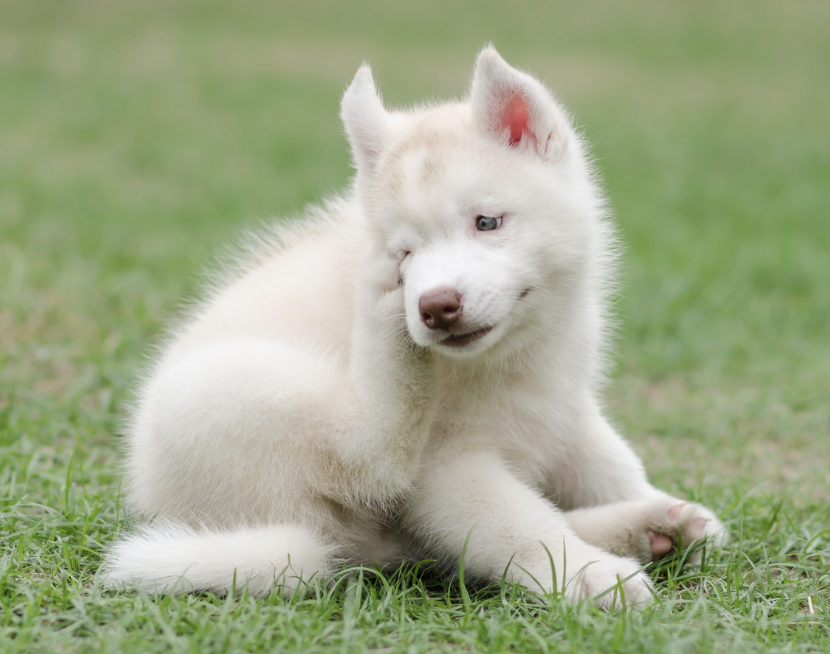
5. Vacuum your carpet and furniture often

What Dog Breeds are the Most Hypoallergenic?
These dog breeds are considered to be the most hypoallergenic, according to the AKC.
- Poodle
- Maltese
- Chinese crested
- Coton de Tulear
- Giant schnauzer
- Irish water spaniel
- American hairless terrier
- Barbado da Terceira
- Barbet
- Bedlington terrier
- Affenpinscher
- Afghan hound
What Dog Breeds are the Least Hypoallergenic?

Some dog breeds are not recommended for allergy sufferers. Most of these breeds shed or drool a lot. Breeds to avoid if you have dog allergies include:
- Basset hound
- Boston Terrier
- Bulldog
- Doberman Pinscher
- German Shepherd
- Labrador Retriever
- Pekingese
- Pug
- Saint Bernard
- Siberian Husky
FAQ
What does it mean for a dog breed to be hypoallergenic?
Hypoallergenic dog breeds are those that are less likely to cause an allergic reaction in people who are sensitive to pet allergens.
Are Huskies considered a hypoallergenic dog breed?
No, Huskies are not considered a hypoallergenic dog breed.
What causes allergic reactions to dogs?
Allergic reactions to dogs are caused by exposure to the proteins found in their skin cells (dander), saliva, and urine.
Is it the dog’s fur or dander that causes allergic reactions in people?
Both the dog’s fur and dander can cause allergic reactions in people, but it is primarily the dander that causes the most problems.
What is dander, and why is it a problem for people with allergies?
Dander is made up of tiny flakes of dead skin that dogs shed naturally. For people with allergies, exposure to these flakes can trigger an immune response that leads to allergy symptoms.
Are there any breeds of dogs that are completely hypoallergenic?
No dog breed is completely hypoallergenic, but some breeds are less likely to cause allergic reactions in people than others.
Are there any dogs that are better for people with allergies than others?
Yes, some dog breeds that are less likely to cause allergic reactions in people include Poodles, Bichon Frises, and Portuguese Water Dogs.
Do Huskies shed a lot of fur?
Yes, Huskies shed a lot of fur, especially during seasonal changes.
Can Huskies be groomed to reduce the amount of dander they produce?
Regular grooming can help reduce the amount of dander that Huskies produce, but it cannot eliminate it completely.
What are some common symptoms of dog allergies?
Common symptoms of dog allergies include sneezing, runny or stuffy nose, itchy or watery eyes, and skin rashes.
Can people with dog allergies develop immunity over time?
Some people with dog allergies may develop a tolerance or immunity over time, but this is not guaranteed and may not be the case for everyone.
Are there any medications that can help alleviate dog allergy symptoms?
Yes, there are medications such as antihistamines and nasal corticosteroids that can help alleviate dog allergy symptoms.
What should someone with allergies do if they want to adopt a Husky?
Someone with allergies who wants to adopt a Husky should spend time with the dog before adopting to see if they have an allergic reaction. They should also be prepared to take allergy medications and to groom the dog regularly to reduce dander.
Are there any other factors to consider besides allergies when deciding whether to adopt a Husky?
Yes, Huskies are an active and high-energy breed that require a lot of exercise and training. They also shed heavily and may not be a good fit for people who are sensitive to dog hair.
What are some other breeds of dogs that are good for people with allergies?
Other dog breeds that are good for people with allergies include the Bichon Frise, Maltese, and Schnauzer.
Are Alaskan Huskies considered a hypoallergenic dog breed?
No, Alaskan Huskies are not considered a hypoallergenic dog breed, and they may trigger allergic reactions in people who are sensitive to pet allergens.
Do Alaskan Huskies shed a lot of fur and dander?
Yes, Alaskan Huskies shed a lot of fur and dander, especially during seasonal changes. Regular grooming can help reduce the amount of dander they produce, but it cannot eliminate it completely.
What can people with allergies do if they want to adopt an Alaskan Husky?
People with allergies who want to adopt an Alaskan Husky should spend time with the dog before adopting to see if they have an allergic reaction. They should also be prepared to take allergy medications and to groom the dog regularly to reduce dander. If someone has severe allergies, it may not be advisable to adopt an Alaskan Husky or any dog breed that is known to trigger allergies.
What is the difference between a Siberian Husky and an Alaskan Husky?
While Siberian Huskies and Alaskan Huskies are both sled dogs, there are several differences between the two breeds:
-Origin: Siberian Huskies were bred in Siberia by the Chukchi people, while Alaskan Huskies were developed in Alaska by mushers through selective breeding.
-Purpose: Siberian Huskies were primarily bred for transportation and hauling goods, while Alaskan Huskies were bred for racing and performance.
-Appearance: Siberian Huskies are known for their distinctive markings, including the characteristic “mask” on their face. They are also smaller and lighter than Alaskan Huskies. Alaskan Huskies, on the other hand, come in a wider range of colors and sizes, and their appearance can vary widely depending on the breeding.
-Temperament: Siberian Huskies are known for being friendly and outgoing, while Alaskan Huskies can be more independent and reserved.
-Energy level: Siberian Huskies have a moderate energy level and can be content with daily walks, while Alaskan Huskies are high-energy dogs that require a lot of exercise and stimulation.
-Adaptability: Siberian Huskies can adapt to living in a variety of environments, while Alaskan Huskies are better suited to colder climates and may not do well in warmer climates.
Related Articles:
- Top 4 Dog Foods for Healthy Huskies
- Finding the Perfect Hypoallergenic Dog for Your Family: Tips for Adopting a Dog That Won’t Trigger Allergies
- 55 Hypoallergenic Dog Breeds You Might Be Able To Live With If You Have Allergies

